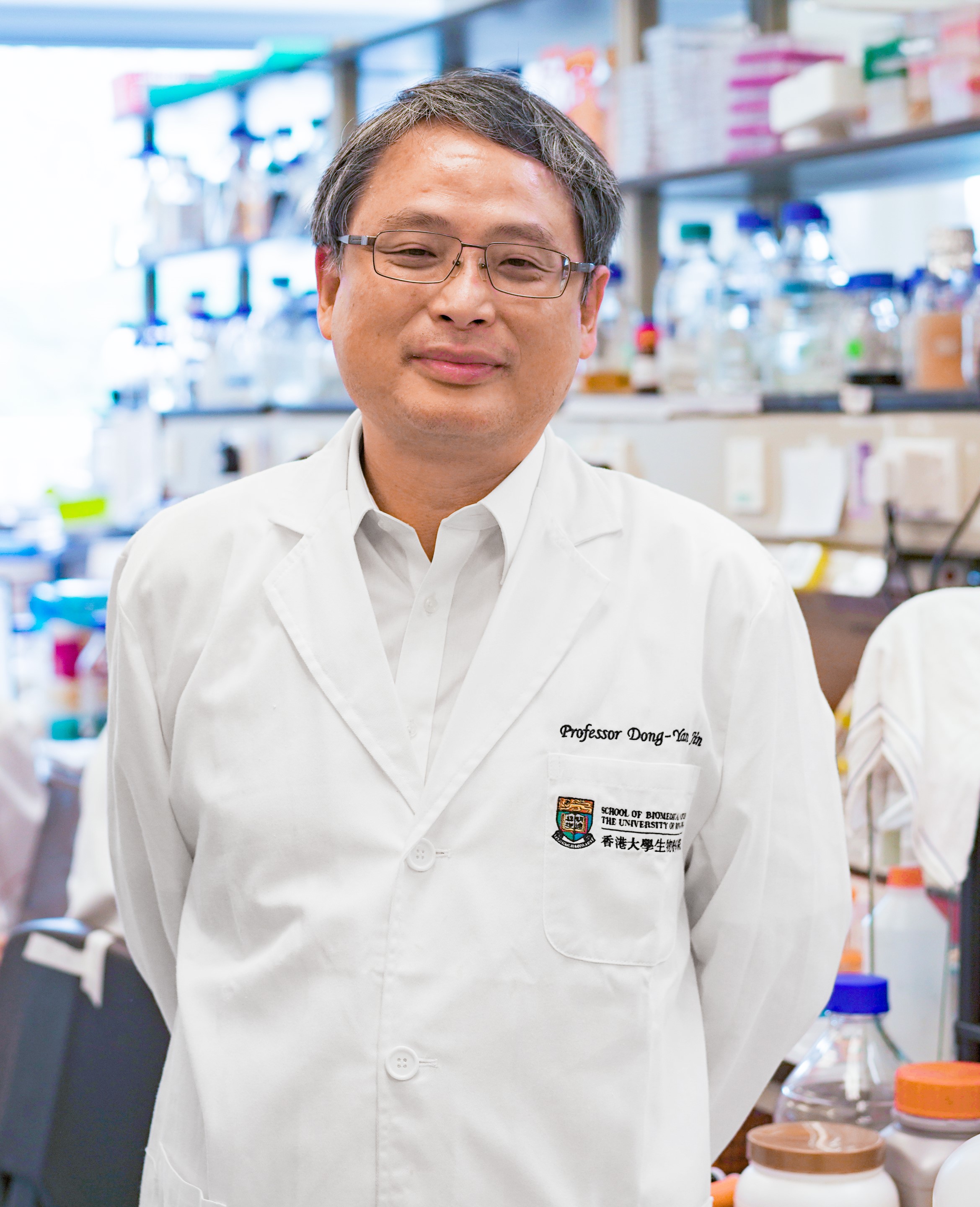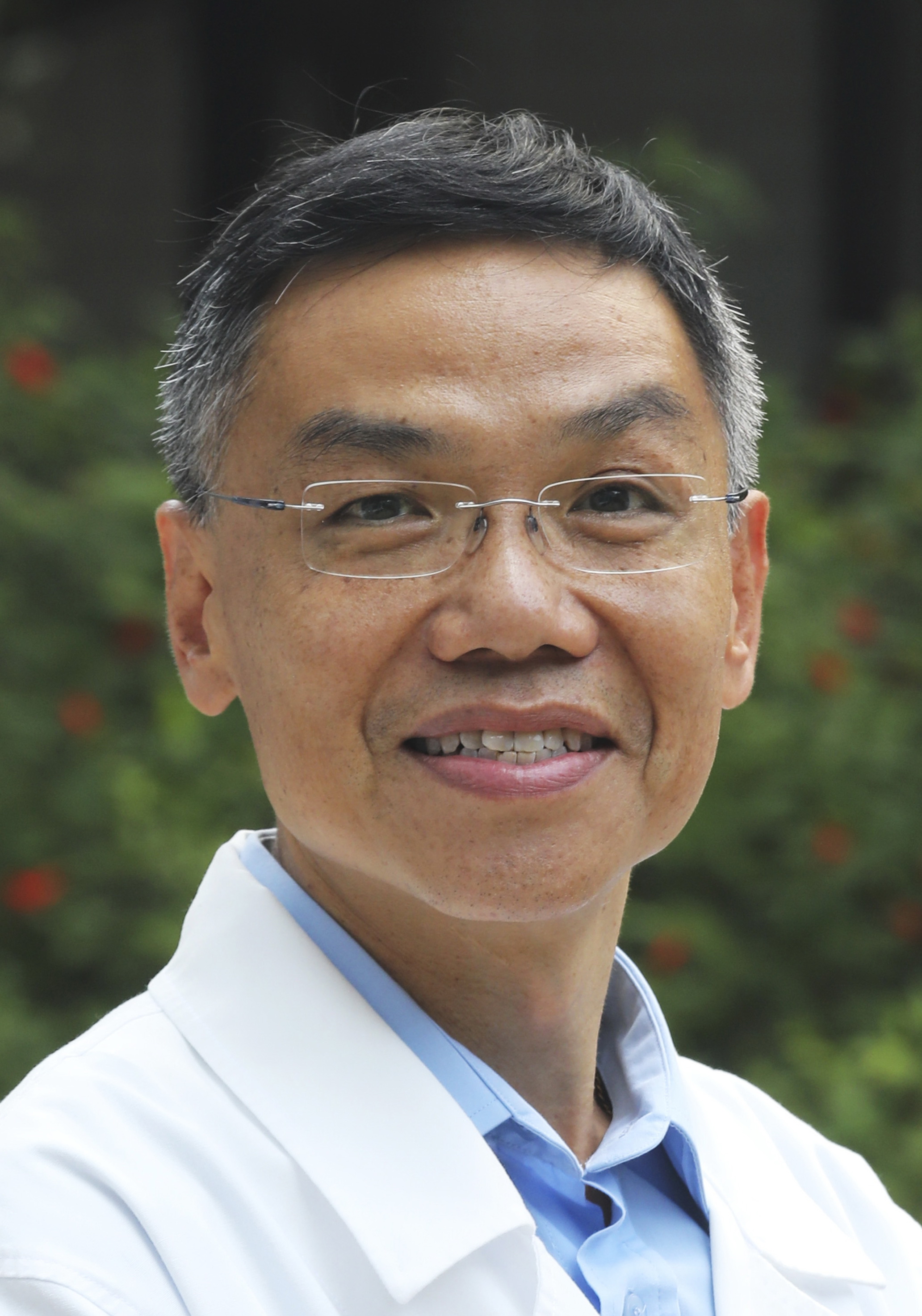
HKU Coordinating Three New Theme-based Research Scheme Projects
HKU is coordinating three large-scale projects funded by the Research Grants Council (RGC) in the eleventh round of the Theme-based Research Scheme (TRS), and also participating in a further three projects. TRS is a major RGC grant scheme that aims to focus academic research efforts on themes of strategic importance to the long-term development of Hong Kong.
Two of the three HKU-led projects focus on the COVID-19 virus, with the third one focussing on biliary atresia, an intractable newborn liver disease.
Ecology, Molecular Virology and Pathogenesis of SARS-CoV-2: From Bedside to Bench and Back
|
Project Coordinator: Professor Dong-yan Jin, School of Biomedical Sciences “Our work will also contribute to the development of new strategies, methods and leads for early and rapid diagnosis, immunisation with live attenuated and synthetic vaccines, as well as therapeutic treatment targeting either the virus or the host.”
|
Project Coordinator Professor Dong-yan Jin |
|
The team is a group of world-leading clinicians and scientists specialised in coronavirus research. Among their discoveries that have had a local and global impact, their first report on human-to-human transmission and family clustering of COVID-19 provided the key scientific evidence for China’s decision to lock down Wuhan in its fight against the deadly disease. Professor Jin said that the funding from this scheme “provides another opportunity to demonstrate to the world the vibrancy and creative capability of our research… and helps to maintain and enhance our leadership position in this field, as well as to nurture next-generation leaders.” |
|
Virological, Immunological and Epidemiological Characterization of COVID-19
|
Project Coordinator: Professor Leo Poon, School of Public Health “This project investigates two major areas related to COVID-19,” Professor Poon said. “The first research area primarily focuses on SARS-CoV-2 variants found in humans. We will monitor for viral genetic changes and, more importantly, assess the potential public health risk (such as transmissibility, vaccine escape and disease severity) caused by these genetic changes. The second area focuses on assessing COVID-19 immune responses in the local population. Specifically, we will evaluate the potential use of COVID-19 vaccines to prevent infection at the individual and population levels.”
“Findings of our work will form the scientific basis for policymaking and establishing new research direction. Ultimately, we hope our effort can help change our lives from ‘new normal’ back to ‘real normal’.”
|
|
|
Members of the team have been working on emerging infectious diseases – such as pandemic H1, H5N1, SARS and MERS – for more than two decades and have made significant scientific discoveries with real public health impacts. One of the most exciting things about this programme, Professor Poon said, is that it provides further opportunities for conducting highly multidisciplinary work with other outstanding investigators to address this global problem. “This TRS programme will also allow us to maintain and enhance Hong Kong’s world-leading status in emerging infectious diseases.”
|
|
Translating Disease-Mechanism Discoveries to Improve Treatment of Biliary Atresia, an Intractable Newborn Liver Disease
|
Project Coordinator: Dr Vincent Lui, Department of Surgery Biliary atresia (BA) is a devastating inflammatory disease of the bile ducts affecting infants, and it is prevalent among Asians. If untreated, patients will die from liver fibrosis and failure. The outcome of the current treatment of Kasai surgery (re-establishing bile flow) is poor, often leading to complications and the need for liver transplantation. “The root cause for the lack of progress in BA treatment lies in the poor knowledge of its underlying pathogenetic mechanisms,” Dr Lui said. “The substantial healthcare burden caused by the disease affects not only patients from infancy to old age but also their families, carers and society.”
|
|
|
Dr Lui said he and the whole team are delighted that this project has been awarded in this competitive scheme for continuing their collaborative effort in improving treatment for young BA patients, “whose resilience in the face of suffering has inspired us on this long journey of inquiry to provide a better future for them.”
|
|
In the eleven rounds of TRS to date, HKU has received the largest share of funding overall for coordinating 27 of the 60 funded projects, and is participating in a further 26 projects coordinated by other local institutions.
Success in other competitive funding schemes
In other funding results, the University secured both the highest number of approved projects and the largest share of funding among all local institutions in the latest round of the General Research Fund (GRF) (221 awarded projects, HK$178M of funding) and the Early Career Scheme (ECS) (43 awarded projects, HK$32M of funding). Under the Humanities and Social Sciences Prestigious Fellowship Scheme (HSSPFS), HKU continued to dominate over other local institutions by receiving 3 out of 9 funded projects. In the ten awards each funded under the Research Fellow Scheme (RFS) and Senior Research Fellow Scheme (SRFS), HKU secured three awards for RFS and two for SRFS.





